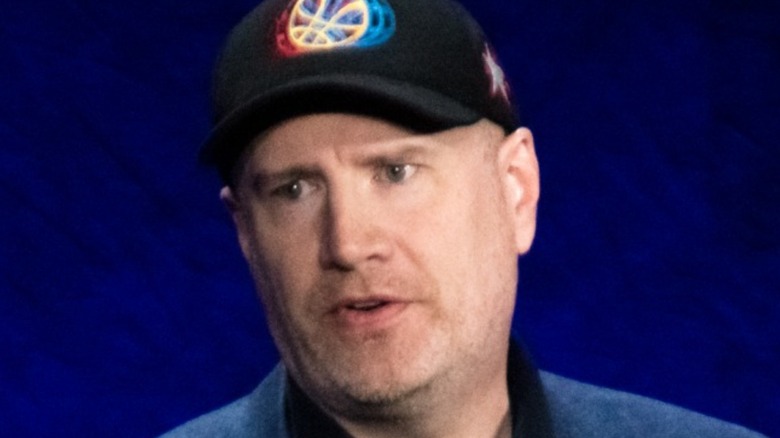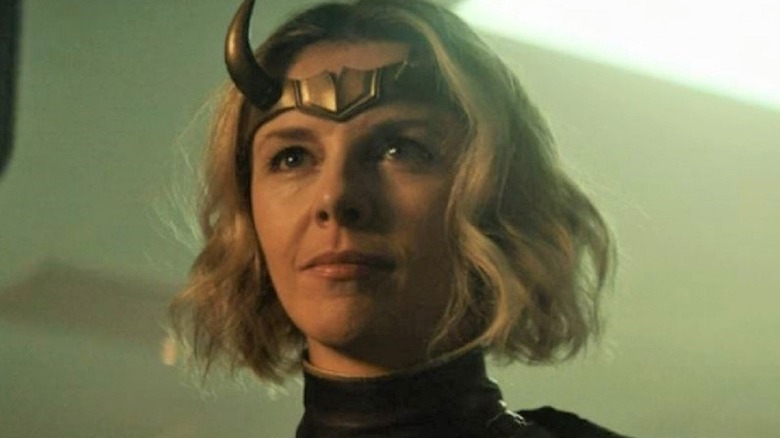Kevin Feige Answers A Major Question We All Had About The MCU Multiverse
The Marvel Cinematic Universe has continued to expand under the guidance of Marvel Studios President Kevin Feige, and it looks like the franchise isn't set to slow down that expansion anytime soon. After weathering the COVID-19 pandemic, the MCU got right back into the swing of things with "Spider-Man: No Way Home," a film that went on to gross over $1.8 billion at the worldwide box office (per Box Office Mojo). Simply put, the MCU is still on top of the world.
Now that Thanos (Josh Brolin) has been defeated once and for all, the MCU has moved on to bolder storytelling avenues. Perhaps one of the biggest plot points brought into the fold in recent years, and pulled straight from Marvel Comics, is the introduction of the multiverse. This brings in the potential for endless universes with countless versions of Marvel characters. The concept of the multiverse was heavily explored in "Spider-Man: No Way Home," which saw previous live-action versions of Spider-Men and their villains brought in to the MCU thanks to a botched spell from Peter Parker (Tom Holland) and Doctor Strange (Benedict Cumberbatch).
However, the concept of the multiverse can be a confusing one that leaves some fans with more queries than anything, especially with "Doctor Strange in the Multiverse of Madness" right around the corner. Luckily, Feige recently answered a pretty major question relating to the multiverse and its place in the MCU.
Kevin Feige says that Loki and Sylvie are to blame for the multiverse
During an interview at the red carpet world premiere for "Doctor Strange in the Multiverse of Madness," Kevin Feige confirmed that the whole reason the multiverse is possible is because of the events that Loki (Tom Hiddleston) and Sylvie (Sophia Di Martino) allow to unfold when the latter kills He Who Remains (Jonathan Majors) and unleashes the multiverse in Disney+'s "Loki." This led to a domino effect and allowed the events of "Spider-Man: No Way Home" to happen, which in turn allow the events of "Doctor Strange in the Multiverse of Madness" to take place.
While He Who Remains said that this would happen in "Loki," it is often hard to trust the word of characters alone, and some fans may have still been confused if they only watched "Spider-Man: No Way Home" and skipped "Loki" entirely. Still, this development is not entirely shocking news for those who have been following the MCU closely over the past few years. Add to this the fact that Michael Waldron serves as both the showrunner for Season 1 of "Loki" and the screenwriter for "Doctor Strange in the Multiverse of Madness," and it all starts to make even more sense.
It'll be interesting to see how the events of the latest "Doctor Strange" movie lead to even more multiverse storytelling in the future, especially as "Ant-Man and the Wasp: Quantumania" looks to bring in Kang the Conqueror, a villainous alternate timeline/multiverse version of He Who Remains.

